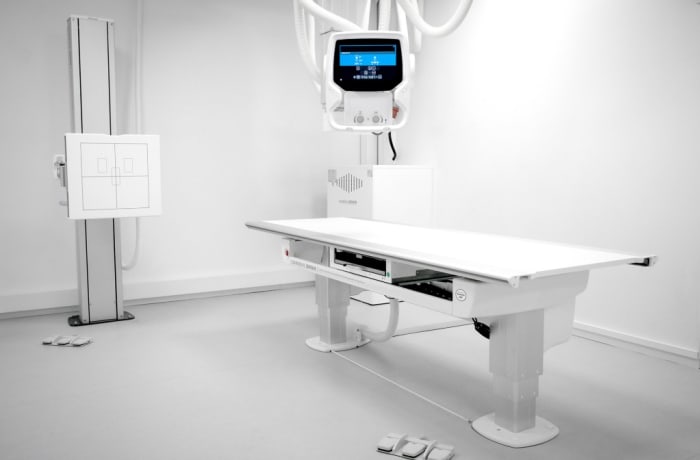
Digital X-Ray System -Micturating Cysto-Urethrography
Further information
A micturating cysto-urethrogram (MCU), also known as a voiding cystourethrogram (VCUG), is a type of medical imaging test used to evaluate the structure and function of the urinary tract system, particularly the bladder and urethra.
During an MCU, a contrast material (such as a dye or liquid) is inserted through a small tube into the bladder via the urethra, the tube that carries urine out of the body. X-rays are then taken as the bladder fills and empties, allowing the radiologist to evaluate the anatomy and function of the bladder and urethra.
The procedure is typically performed in children to evaluate for abnormalities such as vesicoureteral reflux, a condition in which urine flows from the bladder back up into the ureters and can cause kidney damage. It may also be used in adults to evaluate for conditions such as bladder or urethral diverticula or obstructions.
MCUs can be uncomfortable, particularly during the insertion of the catheter, and some patients may experience mild discomfort or pain during the procedure. In rare cases, complications such as infection or injury to the bladder or urethra may occur. Your healthcare provider will discuss the risks and benefits of the procedure with you before it is performed.









